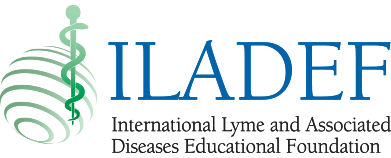PANDAS: FAQs and Answers for Concerned Parents
Author: Dr. Nancy O’Hara, MD, MPH, FAAP
The International Lyme and Associated Diseases Society (ILADS) is a nonprofit, international, multidisciplinary medical society dedicated to the diagnosis and treatment of Lyme and other complex inflammatory diseases. With these educational blog posts from experts and members of our board, ILADS aims to promote awareness and understanding of health and wellness, especially as it relates to complex inflammatory diseases, so that we can all learn and grow together. If you have any questions or want more information, you can email us at contact@ilads.org.
Disclaimer: Every patient is an individual with unique characteristics. This blog article is not medical advice. It does not constitute a physician-patient relationship. It is for educational purposes only. Do not try out what is in this article without medical advice, working with your licensed physician and licensed healthcare providers.
–
What if your child suddenly developed strange symptoms of OCD (Obsessive compulsive disorder), severe anxiety, tics, or hyperactivity out of the blue? These symptoms can be associated with an autoimmune disorder called PANDAS.
These symptoms can appear seemingly overnight with a dramatic onset. Symptoms may include anxiety, motor and vocal tics, obsessions, compulsions, and a variety of other issues including somatic symptoms like abrupt onset of bedwetting or severe and disruptive restless sleep.
When something like this happens to your child, it’s frightening. It’s normal to have many questions as a concerned parent.
Dr. O’Hara is the author of Demystifying PANS/PANDAS, a guide to understanding, diagnosing, treating, and managing PANS/PANDAS/BGE. It is a fantastic resource for medical professionals and health practitioners who aim to better understand PANS/PANDAS and BGE.
What Causes PANDAS?
Pediatric Autoimmune Neuropsychiatric Disorder Associated with Streptococcal Infection or PANDAS is an abnormal immune response associated with strep infections. A child with a strep infection in their throat, sinuses, or elsewhere produces antibodies that should fight the invading bacteria.
In children who develop PANDAS, the immune system goes awry, and the antibodies instead attack and inflame an area of the brain called the Basal Ganglia. This attack on a different area of the body, here a part of the brain responsible for mood, movement, and behavior, is called molecular mimicry. This immune system attack is also facilitated by the breakdown of the blood brain barrier (BBB) by toxic mediators, immune cells, and more.
When this autoimmune attack on the brain occurs in susceptible children, the result is an abrupt onset of neuropsychiatric symptoms like anxiety, OCD, tics, and more.
How Do I Know If My Child Has PANDAS?
If you think your child may have PANDAS, choose a doctor who is knowledgeable about this autoimmune disorder. In addition to OCD, there are other symptoms to watch for.
Some diagnostic criteria include:
- Abrupt onset of OCD or a restrictive eating disorder
- The OCD symptoms can include intrusive thoughts
- The restrictive eating disorder can be linked to a fear of choking or of contamination
- In some children who have had a previous abrupt onset of symptoms, the onset may appear more subacute
- And though the typical age group is 3-13 years, young adults, who have been undiagnosed or missed in earlier years, can present with OCD or other symptoms
Other PANDAS symptoms may include:
- Anxiety, Separation Anxiety
- Emotional Lability and/or Depression
- Irritability, Aggression, Rage and/or Severe Oppositional Behaviors
- Behavioral (Developmental) Regression like baby talk
- Sudden Deterioration in School Performance including ADD & ADHD of abrupt onset
- Motor or Sensory Abnormalities including tics and handwriting deterioration
- Somatic Signs and Symptoms, including Sleep Disturbances, Enuresis, or Urinary Frequency
How Is PANDAS Treated?
PANDAS can be a devastating diagnosis for both the parents and the child. Parents need guidance and support to manage their child’s symptoms and find the proper treatment.
Treatment of PANDAS should be individualized to the child’s behavioral and medical needs. Medications should include antibiotics and/or antimicrobials for an underlying strep infection, anti-inflammatories to calm the inflamed nervous system, nutraceuticals, botanicals, cognitive behavioral therapy, and perhaps low doses of psychoactive medications for OCD and other symptoms.
Behavioral therapy is helpful in managing anxiety, depression, OCD fears, and other behavioral issues. Therapy for parents and the entire family can be beneficial for dealing with the stress of the diagnosis and managing disturbing symptoms.
Though some children may need more invasive interventions such as IVIG or plasmapheresis, the majority of children can recover with an appropriate 3-pronged approach of antimicrobials, anti-inflammatories, and therapeutic and nutraceutical approaches to their care.
Find a Doctor Who Specializes in PANDAS Syndrome
The onset of PANDAS Syndrome can be frightening for both the child and the parent. It’s important to know where to turn to make sure your child receives the proper diagnosis and treatment for this autoimmune disorder.
Dr. Nancy O’Hara specializes in treating PANDAS and other neuropsychiatric disorders. She trains and mentors clinicians in the U.S. and abroad on how to recognize, diagnose, and treat PANDAS.
Dr. O’Hara is the author of Demystifying PANS/PANDAS, a guide to understanding, diagnosing, treating, and managing PANS/PANDAS/BGE. It is a fantastic resource for medical professionals and health practitioners who aim to better understand PANS/PANDAS and BGE. To speak with Dr. O’Hara or schedule an appointment, you can find her contact and clinic information here.
